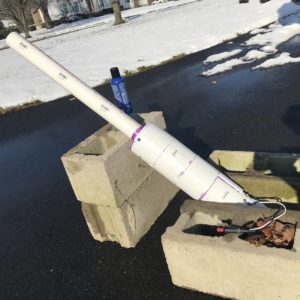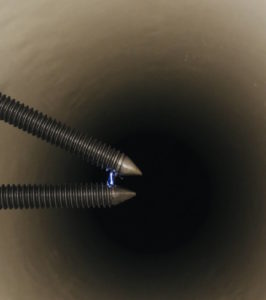Throughout my academic life, I have always struggled to find a topic for open-ended assignments. Of course, the further along in my academic trajectory I get, the less strict the guidelines for each assignment become—and the more I struggle to find myself a topic. Coming up with research topics is, of course, critical to any researcher or student’s success—particularly when the culmination of our work as Princeton students is a nearly completely open-ended assignment: the thesis or independent project that each of us completes to graduate. So, I have learned to embrace my discomfort and use each new prompt as a way to hone my skills at successfully choosing topics.

The difficulty in selecting a topic lies in fulfilling three major criteria: does it fit the prompt, does it fit the scale of the project (will there be too much to cover in the allotted time? Too little?), and, arguably most importantly, is it interesting to you. While it is critical to make sure the topic fits the assignment, it is also important to make sure you are conducting research on something that fits you and your interests because it can be extremely difficult to complete a project on a topic that has long since stopped holding your interest.
The most recent open-ended project assigned to me was my final Thermodynamics Lab project. Essentially, we had several weeks to design and test an experiment or apparatus that would allow us to explore some thermodynamic concept (i.e., anything to do with heat transfer). Luckily for me, it was a group project, so I was able to recruit my friends to help come up with a creative idea that fit the prompt. We had a productive brainstorming session in which everyone threw out whatever idea came into their head and we talked through its feasibility and suitability, and we eventually lit upon an idea that seemed fitting, doable, and extremely exciting: we would build a butane combustion cannon and analyze the thermodynamic qualities of the butane by firing it with various amounts of fuel.
We built the cannon out of sections of PVC pipe and a grill igniter—which sounds simple, but in fact presented a number of problems. For starters, we had to come up with a creative way to get the spark from our grill igniter into the combustion chamber without decreasing its strength (we ended up using two conductive, sharpened screws). One of the most interesting moments of all came from our attempt to test the ignition of the cannon without firing a projectile—though we hit the sparker about 20 times, it refused to ignite. Then, suddenly, it finally did—while the barrel of the cannon was pointing right at my face. Luckily, I dodged the fireball that came my way and saved my hair. We all had a good laugh over it, congratulating ourselves on choosing such an exciting project topic.

As with any other project (particularly those that involve physically building something), we ran into a number of hurdles along the way that challenged us and tested our commitment to the topic. Many of them required solving problems with, and sometimes rebuilding, components of the cannon—we had to start from scratch at one point, after the cannon was halfway built—but some of the hardest obstacles to overcome involved analyzing the data and writing the report, and it was here that our choice of project really helped us.
Although none of us wanted to go from hearing the spectacular FOOM! of the cannon launching to writing a 20-page report about energy conversion, we were able to trudge through the less engaging parts of the project simply because we still thought the topic was interesting. Had we chosen a less creative project, the report would have been exponentially more painful to write, and we would not have had the satisfaction of being able to use something we genuinely enjoyed doing—building and firing a cannon—to fulfill an academic requirement.
It was this project that showed me just how much more fun an assignment can be if the right topic is chosen, and also gave me a tool to use in coming up with topics in the future: bouncing crazier and crazier ideas off of my friends, and then picking them apart until we find something promising.
— Alexandra Koskosidis, Engineering Correspondent

